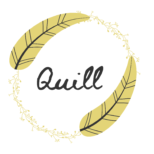"Art washes from the soul the dust of everyday life." -Pablo Picasso
Alternative Approaches to Wellness

Writing
Versatile and easily practiced, writing is a powerful therapeutic tool for personal growth. Writing exercises assist with a spectrum of conditions, aiding in areas such as emotional processing, trauma recovery and stress management.

Visual Art
Collage, painting, drawing, coloring, clay work and photography are forms of non-verbal, intuitive, curative expression. The hands-on, sensory, symbolic art process and what it communicates opens windows into ourselves.

Play
Play therapy builds on the natural communicative and learning processes of children. It utilizes the powers of imaginative play to help kids express what is troubling them, promotes cognitive development and positive relating.
Beyond Words
Counseling as Unique as You
What is expressive arts therapy?
It is a multimodal approach that incorporates art, writing, music, dance and drama, depending on the therapist’s knowledge areas and clients’ interests. Quill Counseling currently focuses on art and writing. Using our inborn desire to create, the the creation process initiates reflection and seeds change.
What kind of art would I do?
There are many activities using art for people of all ages. Kids may draw scribble monsters to address fears, pound clay to express anger or set up a scene to tell a story about school dynamics in the sandtray. Adults might use pastels to sketch a relational conflict, build a foraged nature collage or work on an ongoing painting reflective of their anxiety. Art doesn’t have to be part of every session.
Tell me More About Expressive Writing
Writing, in any form, can be a mode of releasing internalized negative feelings. Beyond its cathartic nature, putting words on paper assists us in understanding our experiences and emotions; it allows us to mold narratives and take ownership over them. Poetry, for example, transports us to the landscape of symbolism and metaphor, where it’s easier to tap into our subconscious. This approach also uses existing literature as part of treatment, which is known as bibilotherapy.
DO I NEED TO BE "ARTISTIC" OR A "GOOD" WRITER ?
Definitely not! Expressive therapy isn’t intended to be a class where one learns techniques then practices them for the sake of a product. These approaches are anchored in the idea that it’s the process of translating thoughts, emotions and experiences into tangible form that’s important, regardless of the outcome. Clients can have any level of ability and experience.
What Can I expect from Play Theapy?
Children are invited to express themselves through play while the therapist observes and facilitates. Parents are interviewed prior to the start of therapy. Sessions are typically 45 minutes. Play helps with social and emotional skills, communication, positive behavior and problem-solving. Children may be undergoing stress, a family crisis, change in environment, illness, and, or school issues . It can help with depression, anxiety, grief, anger, attention and healthy development.
This doesn't interest me. What else do you offer?
Therapy options extend beyond writing, art or play. Cognitive Behavioral Therapy, for example, can uncover unhelpful ways of thinking and patterned behavior. Dialectical Behavior Therapy can increase core mindfulness, distress tolerance and emotional regulation. Narrative, interpersonal psychotherapy, and ecotherapy are additional options too. We walk different therapeutic avenues with clients and ask for feedback along the way about what’s helpful.
Expressive Art Examples
![[ File # csp10801140, License # 1991824 ]
Licensed through http://www.canstockphoto.com in accordance with the End User License Agreement (http://www.canstockphoto.com/legal.php)
(c) Can Stock Photo Inc. / theblackrhino](https://i0.wp.com/quillcounsel.com/wp-content/uploads/2021/01/Art-Therapy-example-1.jpg?fit=150%2C150&ssl=1)





